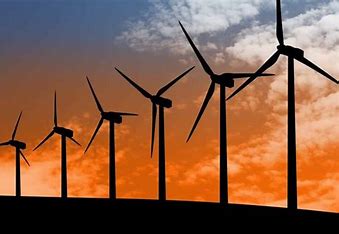Fertilizer producer becomes first in Brazil to invest in self-production aiming to supply 30% of its energy needs
11/17/2022

Brazilian power company Casa dos Ventos and Mosaic Fertilizantes have signed a commercial agreement to supply 30 average megawatts (aMW) of wind power for 14 years from the Umari wind complex in Rio Grande do Norte state, starting in 2026. The value of the contract was not disclosed.
With the partnership, Mosaic becomes the first fertilizer company in Brazil to invest in the acquisition of wind power with the possibility of becoming a self-producer with the capacity to supply 30% of the contracted energy needs in the period from 2026 to 2039, besides providing stability in the supply.
For Casa dos Ventos, the model of partnerships for self-production with large companies strengthens the generation branch, which accumulates 1.7 GW of assets under construction and in operation dedicated to the free market. This attracts electro-intensive partners in search of long-term contracts to escape market oscillations. In parallel, the company maintains a project development area almost exclusively for the joint venture with TotalEnergies.

The Umari wind complex construction began in 2021 and will have 45 wind turbines from Vestas with a total capacity of 202.5 MW. It is smaller than the mega-projects that Casa do Ventos has been implementing but it is capable of avoiding the annual emission of about 405,000 tonnes of CO2 equivalent into the atmosphere.
The park will be ready in 2024, but it is expected to sell energy in small contracts until it starts supplying energy to Mosaic in 2026. Lucas Araripe, head of new businesses at Casa dos Ventos, said that the expected production of the park is about 100 aMW of physical guarantee. There is still 70% of the park’s available energy left, which is being negotiated with other interested companies.
“The total investment in Umari is R$1.3 billion. We imagine that approximately 30% will be with company’s own resources and the rest in long-term financing. We have the option of three financing lines: the Brazilian Development Bank (BNDES), Banco do Nordeste (BNB) and tax-exempt bonds that we can issue to the market”, says the executive.
Felipe Klemperer, vice president of Transformation and Procurement at Mosaic Fertilizantes, stresses that the company had been concerned about diversifying the portfolio to reduce dependence on hydroelectric power and diesel, besides having long-term protection for an industrial consumer. He foresees energy cost reductions that can vary between 10% and 15%.
“We have a demand for 130 aMW. Within our operations we have cogeneration and in the sulfuric acid production process we also produce energy internally, about 30 MW. For the other 100 MW we go to the market. As of 2026, 30 MW will be supplied by this new investment,” he explains.
A fundamental input to guarantee food security, fertilizers are essential, especially for Brazil, a country with a vocation for agribusiness and one of the largest food producers in the world. However, an important point for the reduction of emissions in the food chain is nitrogen fertilizer, a key factor in the direct and indirect emission of greenhouse gases.
Globally, Mosaic Company has announced goals of zero net emissions of greenhouse gases by 2040, and the deadline includes operations in Brazil. One of the ways to accelerate the decarbonization process without having to resort to the more comfortable model of compensation via carbon credits is the investment in renewable sources of non-hydro origin.
The executive says that he will be able to reduce by 30% the so-called “scope 2” emissions (indirect, from the electrical energy acquired for use). “We are working to increase the cogeneration potential with a repowering of our generators,” says Mr. Klemperer.
*By Robson Rodrigues — São Paulo
Source: Valor International
